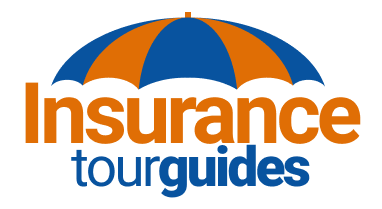Bundling insurance policies—such as combining your auto and homeowners insurance with the same company—can be a convenient way to save money and simplify coverage. But is it always the best option? While bundling often comes with discounts, there are potential downsides to consider. Look into the pros and cons of bundling insurance to decide if it’s the right move for you.
What Does Bundling Insurance Mean?
Bundling means purchasing multiple insurance policies (such as auto, home, renters, or life insurance) from the same provider instead of using different companies for each type of coverage.
Insurance companies reward customers who bundle by offering discounts—sometimes as high as 25% off—on their total premiums. But while bundling seems like a great deal, it’s not always the most cost-effective option.
The Pros of Bundling Insurance
✅ 1. Potential Cost Savings
One of the biggest advantages of bundling is the discount. Most insurers offer 5%–25% off when you bundle policies, reducing your overall insurance costs.
✔ Example: If you pay $1,200 per year for auto insurance and $1,000 per year for homeowners insurance, bundling with a 15% discount could save you $330 per year ($165 off each policy).
✅ 2. Simplified Policy Management
With multiple policies under one insurer, you’ll have:
- One bill instead of multiple payments.
- One point of contact for all your insurance needs.
- Less paperwork and easier account management.
✅ 3. Improved Customer Service and Loyalty Perks
Long-term customers who bundle may receive additional perks, such as:
- Loyalty discounts for staying with the insurer.
- Better customer service priority.
- Fewer coverage gaps, as the insurer understands your full risk profile.
✅ 4. Increased Policy Options and Customization
Bundling often allows you to add extra coverage, such as:
- Umbrella insurance for added liability protection.
- Extended replacement cost for home insurance.
- Accident forgiveness for auto insurance.
Many insurers offer these extras only to bundled policyholders.
The Cons of Bundling Insurance
🚫 1. Not Always the Cheapest Option
While bundling usually saves money, it’s not always the best deal. In some cases, buying policies from different insurers could actually be cheaper, even without a bundling discount.
✔ Example: If Company A offers cheap auto insurance but expensive home insurance, bundling might cost more than getting separate policies from Company A (auto) and Company B (home).
🚫 2. Limited Flexibility
Bundling locks you into one insurer, which can be a disadvantage if:
- You want to switch companies for a better deal.
- You move to a state where your insurer doesn’t operate.
- You need a specialized policy that your provider doesn’t offer.
🚫 3. Potential for Overpaying Over Time
Insurance companies know that bundled customers are less likely to shop around each year. This means they might gradually raise your rates, knowing you’re unlikely to leave.
🚫 4. Not All Policies Qualify for Bundling
Not every type of insurance can be bundled. Some companies don’t offer life or health insurance bundling, meaning you’ll still need multiple insurers.
When Bundling Makes Sense
Bundling is a great option if:
✔ You’re eligible for significant discounts (10% or more).
✔ You value convenience and simplified billing.
✔ Your insurer offers competitive rates on both policies.
✔ You plan to stay with the same insurer long-term.
When You Should Skip Bundling
Bundling might not be worth it if:
❌ Another company offers cheaper standalone policies.
❌ You need a specialized policy that your bundled provider doesn’t offer.
❌ You prefer switching insurers often to find the best deal.
Final Verdict: Should You Bundle Insurance?
Bundling insurance can save money and make managing your policies easier, but it’s not always the best financial decision. Always compare bundled vs. separate policy pricing before making a decision. If the savings are significant and the coverage meets your needs, bundling is a smart move. But if another insurer offers better coverage or a lower price on individual policies, you may be better off keeping them separate.
Before bundling, take the time to shop around, compare prices, and read the fine print—because the best insurance deal is the one that gives you the most coverage for the lowest price!

